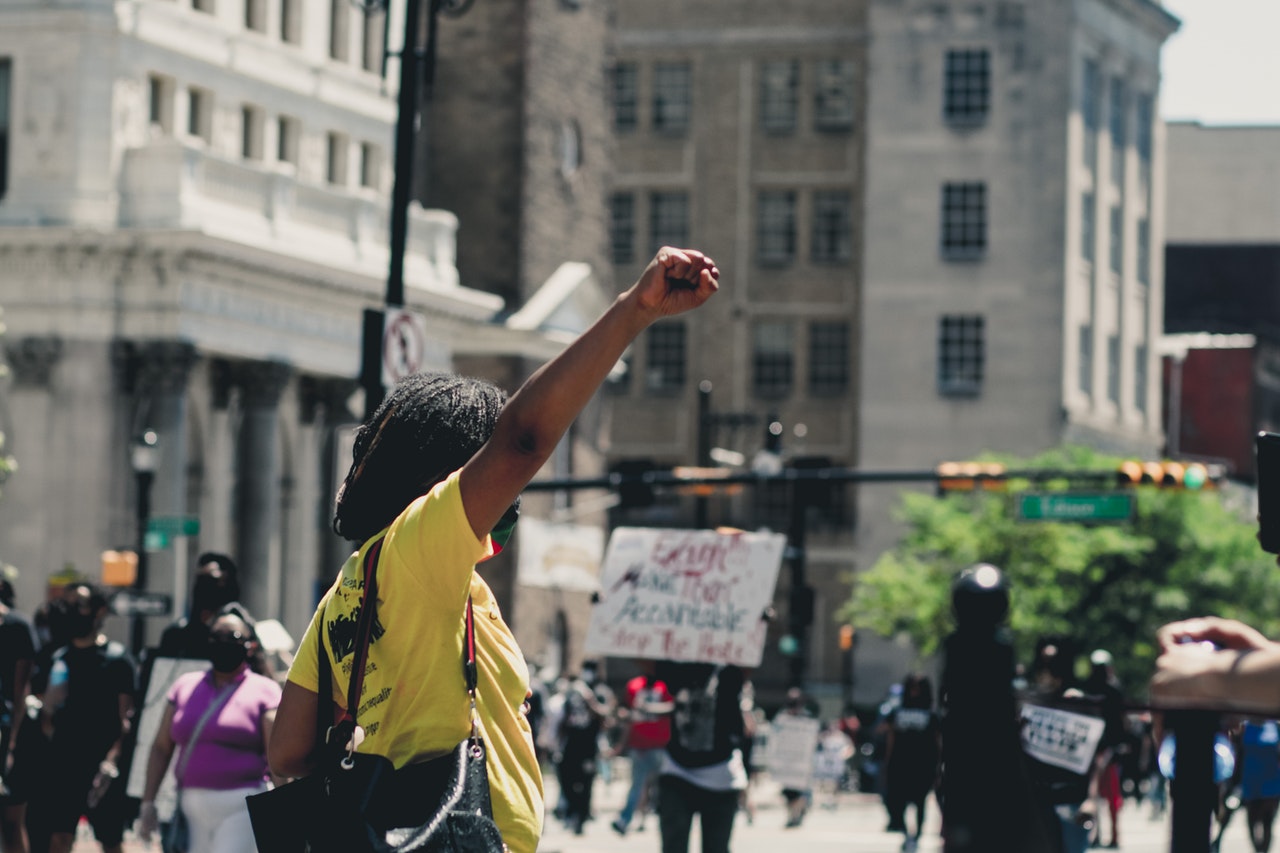Topic: Racial Injustice and the Responsibility of Youth (Grades 11 &12)
First Place
Title: What We Can Control: How Systemic Racism in the United States Impacts the Black Community
By: Salma Abdallah of East Orange, NJ
Being a Black woman in the United States taught me about control. I decide how I conduct myself in school and at home. I decide what clothes I wear. I control how I speak or what opinions I voice.
However, I find it most difficult to control my anger.
In the U.S, we have the luxury of dismissing injustice. We have the luxury of scrolling past headlines and naïvely believing that forced labor, poverty, impure water, and lack of access to services such as healthcare and housing do not exist in the developed world. We have the luxury of thinking, “I am one person. I can’t change the system.” and choosing to remain ignorant.
Many people fail to realize that the United States was born from injustice. First, it was the genocide and enslavement of Indigenous people. Then it was the Triangular Slave Trade and the rise of American chattel slavery. Forced labor still exists today–both public and private prison facilities profit from incarcerated people’s compulsory labor. 40% of the U.S.’s incarcerated population is Black. (Prison Policy Initiative)
Additionally, many people believe that racism–in both name and practice–is a thing of the past. Every system in this country, from the justice system to the media market, is rooted in racist ideologies–specifically the dehumanization of Black people. Trayvon Martin walking down the street with an Arizona and Skittles was grounds for murder. Breonna Taylor sleeping in her own home was grounds for murder. Botham Jean existing in his own space was grounds for murder.
Current media sanitizes the Civil Rights Movement, but the facts are clear. The riots, beatings, lynchings, bombings, and executions happened. Change is not born from peace; it comes from actions. Change comes from stating the truth, not minimizing events to avoid conflict. Many people are afraid of the truth because it makes their oppression apparent. News outlets often portray Black people negatively; however, they do not report on why crime rates are
so high in the Black community. The U.S. poverty rate is 10.5%, but the Black population’s poverty rate is 18.8%. (U.S. Census) Furthermore, the annual median income in the Black community is approximately $46,000. (Feeding America) The United States is failing us by refusing to address these inequities.
Our responsibility as young people is to educate ourselves, recognize what we can control, and change our mindset. This responsibility encompasses the media we consume, the money we spend and where we spend it, uplifting Black voices in our communities, and addressing our country’s systemic racism. The Covid-19 pandemic hit Black communities hardest–surging unemployment and food insecurity rates as well as high death tolls due to comorbidities. (U.S. Census) Everyone wants a part of Black culture–the music, the looks, the clothing–but not many are willing to take on Black people’s problems.
That needs to change.
Support Black businesses. Generational wealth in Black communities is significantly less than their white counterparts due to redlining and discrimination within the housing market. (National Alliance to End Homelessness) Uplift Black creators and Black professionals. Raise
awareness about issues affecting the Black community.
We cannot control everything. But we as youth need to realize what we can control–and what we can do to give everyone a seat at the table.
Bibliography
Sawyer, Wendy. Wagner, Peter. “Mass Incarceration: The Whole Pie 2020.” Prison Policy Initiative, 24 Mar. 2020, https://www.prisonpolicy.org/r…. Accessed 13 Feb. 2022
Creamer, John. “Inequalities Persist Despite Decline in Poverty For All Major Race Groups and Hispanic Origin Groups.” United States Census Bureau, 15 Sept. 2020,
https://www.census.gov/library…
istoric-lows-in-2019.html. Accessed 13 Feb. 2022 “Food Insecurity in Black Communities.” Feeding America, https://www.feedingamerica.org…. Accessed 13 Feb. 2022
M. Monte, Lindsay. J. Perez-Lopez, Daniel. “Covid-19 Pandemic Hit Black Households Harder Than White Households, Even When Pre-Pandemic Socio-Economic Disparities Are Taken Into Account.” United States Census Bureau, 21 Jul. 2021, https://www.census.gov/library… olds.html. Accessed 13 Feb. 2022
“Homelessness and Racial Disparities.” National Alliance to End Homelessness, Oct. 2020, https://endhomelessness.org/ho…. Accessed 13 Feb. 2022

